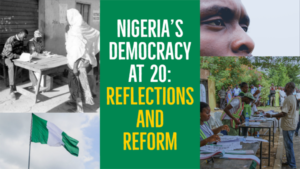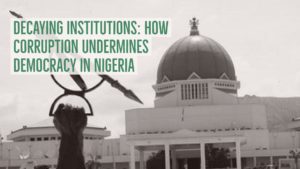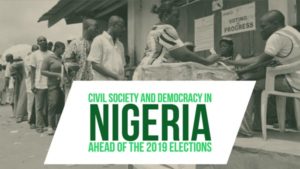 One of the most high-stakes elections that Nigeria has witnessed in decades takes place on 25 February 2023. If successful, it will be the first time during its 63 years of independence that Nigeria has secured three consecutive peaceful transitions of power – an important indicator of how democracy has been progressing incrementally there since 1999, when the military last ruled, writes Audu Bulama Bukarti, a Senior Fellow with the Tony Blair Institute for Global Change.
One of the most high-stakes elections that Nigeria has witnessed in decades takes place on 25 February 2023. If successful, it will be the first time during its 63 years of independence that Nigeria has secured three consecutive peaceful transitions of power – an important indicator of how democracy has been progressing incrementally there since 1999, when the military last ruled, writes Audu Bulama Bukarti, a Senior Fellow with the Tony Blair Institute for Global Change.
It is essential for policymakers in Nigeria, and the country’s international partners, to understand emerging security threats and move to mitigate them to ensure a peaceful transition of power and support any incoming administration, he writes in Democracy Under Threat: Why the Security Risks to Nigeria’s 2023 Elections Must Not Be Overlooked. To enable this, the institute makes recommendations for how to ensure credible elections, includeing the following steps:
 Expand efforts to liberate or secure affected villages and towns: Nigerian security, law-enforcement and intelligence agencies should use the few months left before the February election to push back violent groups and secure vulnerable communities as well as liberate those already seized.
Expand efforts to liberate or secure affected villages and towns: Nigerian security, law-enforcement and intelligence agencies should use the few months left before the February election to push back violent groups and secure vulnerable communities as well as liberate those already seized.- Balance the allocation of security forces for election monitoring and the continued containment of violent groups: Nigerian security and law-enforcement agencies should carefully balance the need to redeploy troops and resources for election monitoring with the continued focus on containing violent groups across the country.
- The Independent National Electoral Commission (INEC) and the police should maintain impartiality: Violence often starts with allegations of bias and rigging that involve the electoral body and the police. The reputation of INEC and, to an extent, the police, for maintaining neutrality during elections has improved over the past few cycles, but this professionalism needs to be maintained.
 The media should counter election-related fake news, the report adds:
The media should counter election-related fake news, the report adds:
The local services of the BBC – BBC Hausa, Igbo and Pidgin – and those of the Voice of America, Deutsche Welle and France International should create teams or dedicate resources to identifying and exposing election-related disinformation and misinformation. These outlets are trusted by locals and their impartiality in the elections gives them an advantage in helping to fight fake news. Credible local radio stations, television stations, newspapers and online sites should be supported to do the same.
Such efforts will require funding and training from pro-democracy groups such as the US-based National Endowment for Democracy (NED) and the MacArthur Foundation, the authors add. RTWT







